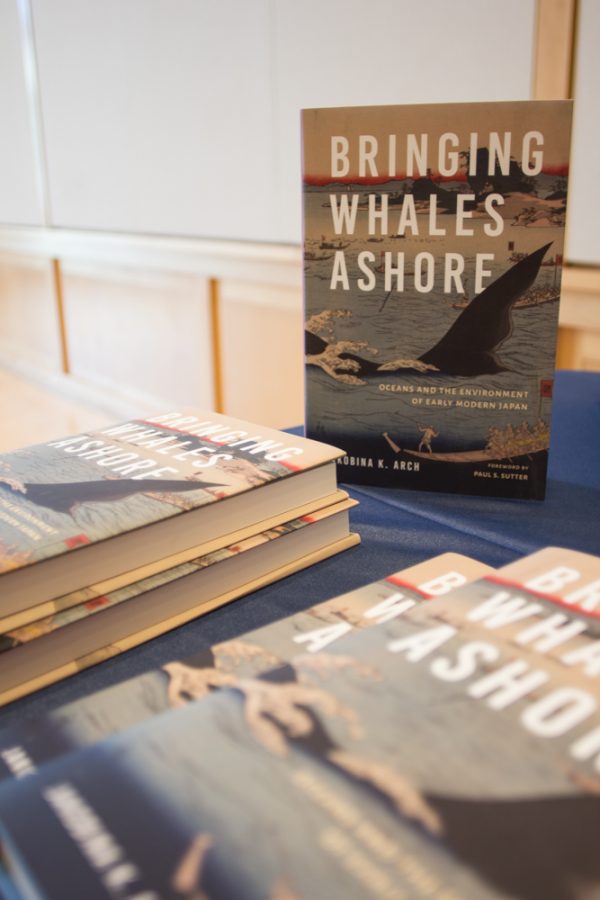A recent post by New Yorker film blogger Richard Brody sparked a worthwhile debate (in which I participated) that addresses a chasm in film schools that dates back to the 1940s, when a group of Italian filmmakers decided to break with the formalist tradition in order to capture the reality of their surroundings with the intent of drawing much needed attention to the social concerns of the day. The divide is one of taste, between aficionados of formalism and realism. I side with the latter style and argued against Brody’s claim that “Two Lovers,” James Gray’s fine film starring Joaquin Phoenix, Gwyneth Paltrow, and Vinessa Shaw that captures a relationship triangle in a Jewish New York City neighborhood, is “one of the best American movies of 2009.”
I’d like to share the, perhaps, fruitful discussion that ensued.
Richard Brody’s initial post:
WINTER KILL
Posted by Richard Brody
Conventional wisdom, we learn, is sometimes right. The ripe season for Oscar-positioned releases is the last quarter of the year; mid-year releases (such as “Up,” “Inglourious Basterds,” and “The Hurt Locker”) may also find their way into contention; but the beginning of the year, particularly the time prior to the Academy Awards ceremonies themselves, are something of a dumping-ground of movies which, though they may do some business (the producers of “Dear John” are happy today), are of no account in the Oscar race.
One of the best American movies of 2009, James Gray’s “Two Lovers,” was released on February 13th. It received many good reviews, and its three principal actors: Joaquin Phoenix, Gwyneth Paltrow, and Vinessa Shaw: were praised, too. It didn’t do much business at the box office: a mere $3 million in domestic gross: which seems to doom a movie in the Oscar race, and it was burdened by Phoenix’s recessive antics when appearing on David Letterman’s show to discuss the movie (i.e., to promote it). Movie, director, and players all merit Oscar nominations: but I recently heard, via Twitter, from Ryan Stewart, that the movie is ineligible for Academy Award consideration “because of an HDNet play before the L.A. premiere.” I wonder whether the film’s distributor, Magnolia, knew this at the time. I also wonder whether the decision-makers at Magnolia aren’t kicking themselves for not having held the wonderful film for a release later in the year.
I also can’t help wondering how it sits with Martin Scorsese that his latest, “Shutter Island,” is opening February 19th. And if it’s as good as I hope it is (and as its trailer suggests it is), will the Academy still remember it a year from now?
My initial response:
To suggest that James Gray’s “Two Lovers” is one of the best American movies of 2009 is, at best, farfetched. It is a small, solid, local piece whose best acting does not come from any of your suggestions – Joaquin Phoenix, Gwyneth Paltrow, or Vinessa Shaw -, but from Isabella Rossellini, the subtly ubiquitous Jewish mother who loves and looks out for her son almost to a fault. The film, its directors, and its actors (except, perhaps, Rossellini) do not merit Oscar nominations, if we are to presume that the Academy selects films based on the ethereal merit about which critics like to banter. It, of course, deserves an Oscar nod over, say, James Cameron’s “Avatar,” but no one remotely in touch with cinema acknowledges that “Avatar” merits any of its nods. When you compare “Two Lovers” to films that genuinely merit Oscar nods like “Goodbye Solo,” “In the Loop,” or “The Hurt Locker,” Gray’s film doesn’t really measure up to their quality, directorial, actorial, or otherwise. Regardless of my criticism, Gray’s film would’ve been completely ignored by the Academy had it been released mid-year or even in the last quarter because it does not fit any of the Oscar-winning mold traits: medium- to big-budget, medium- to big-hype, and medium- to big-director.
DESARIO71’s response:
I agree with the above commenter that “Two Lovers” is “a small, solid, local piece.” I wanted it to be great, but it seemed thwarted by something. The relationships weren’t convincing enough, and there was something stubborn about the writing, something that refused even plausible, realistic forays into pleasure for the viewer. I found myself wanting to see a movie that focused more on the relationship with Vinessa Shaw’s character (I wanted more of her in “Eyes Wide Shut” as well!). In any event, James Gray obviously has talent, and I’m glad he made a relationship drama, but it could have been better.
GALA’s response:
I have to join the chorus of naysayers wondering why James Gray’s “Two Lovers” could possibly be seen as one of the best films of 2009. Only the ending of the film (at least to me it was that, regardless of our individual attempts to realize our own choices, we may never be able to avoid what may have already been assigned for us, reducing life to some sort of existential lottery), as well as Joaquin Phoenix’s great, if uncomfortable, performance, somewhat redeem to me this “not-quite-there” project. As other commenter rightly points it out, there was something missing in the depiction of the lovers’ relationships. Gwyneth Paltrow’s character was especially annoying: her dysfunctionality, which was supposed to be a common thread connecting her to the peculiar character played by Joaquin Phoenix, was far from being anything interesting. She simply looked whiny and bland, and one can only wonder why in the world he would be attracted to the empty shell that she was; it could not be just her blonde hair. On the other note, Martin Scorsese should probably be happy that he won’t have to lose to the ridiculous “Avatar,” which has perfectly packaged the deeply hypocritical moral modus operandi of the Western civilization.
WILLOWINTHEWIND’s response:
Sorry haters, but Brody’s on the money with this one. Two Lovers is an excellent film, James Gray’s best yet, better by a long shot than anything else in competition (excepting Inglorious Basterds, which comes close) and its exclusion from the Oscars is unfortunate but not surprising. One shouldn’t expect much from the hoary Academy, but it is disappointing to see their ideology repeated elsewhere in the culture. Why do the qualities of “solid” and “small” and “local” count against it – the same qualities that could describe “The Hurt Locker”? 2L is all of those things, and is a far, far better film than THL; it’s deeper, more psychologically probing and existentially fraught. It’s also unabashedly a melodrama, which is distinctly unfashionable these days (THL is a melodrama too, but it couches this fact in a lot of “tense” action scenes, which are nice as far as they go but can’t cover for the rote characterization and uninspired plot. And that’s not even touching on the effete politics.) So the Academy misses the boat again. That’s their purpose, isn’t it?
And, last but certainly not least, my follow-up response:
This discussion is precisely touching on the very differences between A. O. Scott and Richard Brody highlighted by last year’s back-and-forth concerning so-called “Neo-Neo Realism“; that is, the age-old debate between formalists and realists. Whereas “The Hurt Locker” is a work of realism, “Two Lovers” is a work of formalism. The qualities of “solid,” “small,” and “local” do not count against Gray’s “Two Lovers” (indeed, they count for it), but these qualities alone are not enough to place it among the “best American movies of 2009.” Even the “psychologically probing and existentially fraught” aspects of the film do not give “Two Lovers” the nuance, ambition, tone, or profundity to compete with Spike Jonze’s “Where the Wild Things Are,” an exceptional example formalists like Mr. Brody should tout instead. Don’t get me wrong, “Two Lovers” is certainly a good film, but it profoundly lacks the qualities I claim Jonze’s film possesses. Bigelow’s “The Hurt Locker” also possesses these same qualities. I strongly contend with your reckless assertion that Bigelow’s film is a melodrama couched in “tense” action sequences. In no way, shape, or form does Bigelow’s film even approach the genre of melodrama. Your assertion, rather, merely aims to belittle the film’s realist tendencies. The plot is inspired by a nuanced understanding of and perspective on the Iraq War that does not merely propel its discourse toward a partisan argument, but rather toward a study, much like David Simon’s “Generation Kill,” of the lives at play in this lethal chess match between two supposedly incompatible ideologies: the Orient and the Occident, as Edward Said would say. I think what inhibits the perspective of many who exalt works of formalism over those of realism in seeing and appreciating the subtlety at play within the latter is a fundamental misconception of the motive and objective of realism itself. Auteurs engaging in realism do not intend to pass tweaked documentaries for fiction: that would be silly, naïve, and disingenuous. Realist filmmakers, rather, intend to explore and ultimately produce the same aura, feeling, and emotion as formalists by confining their work to the limitations of our material world because they believe that the inexplicable devices employed by, say, the fantasy, horror, or thriller genres. More importantly to this discussion, however, is that realist filmmakers do not believe in the necessity to employ overdramatization or melodrama, for example, in “Two Lovers” to convey the same tone, emotion, and intellectual exploration of its characters.
Feel free to contribute to this worthy debate at Richard Brody’s blog, The Front Row, at the New Yorker web site.





